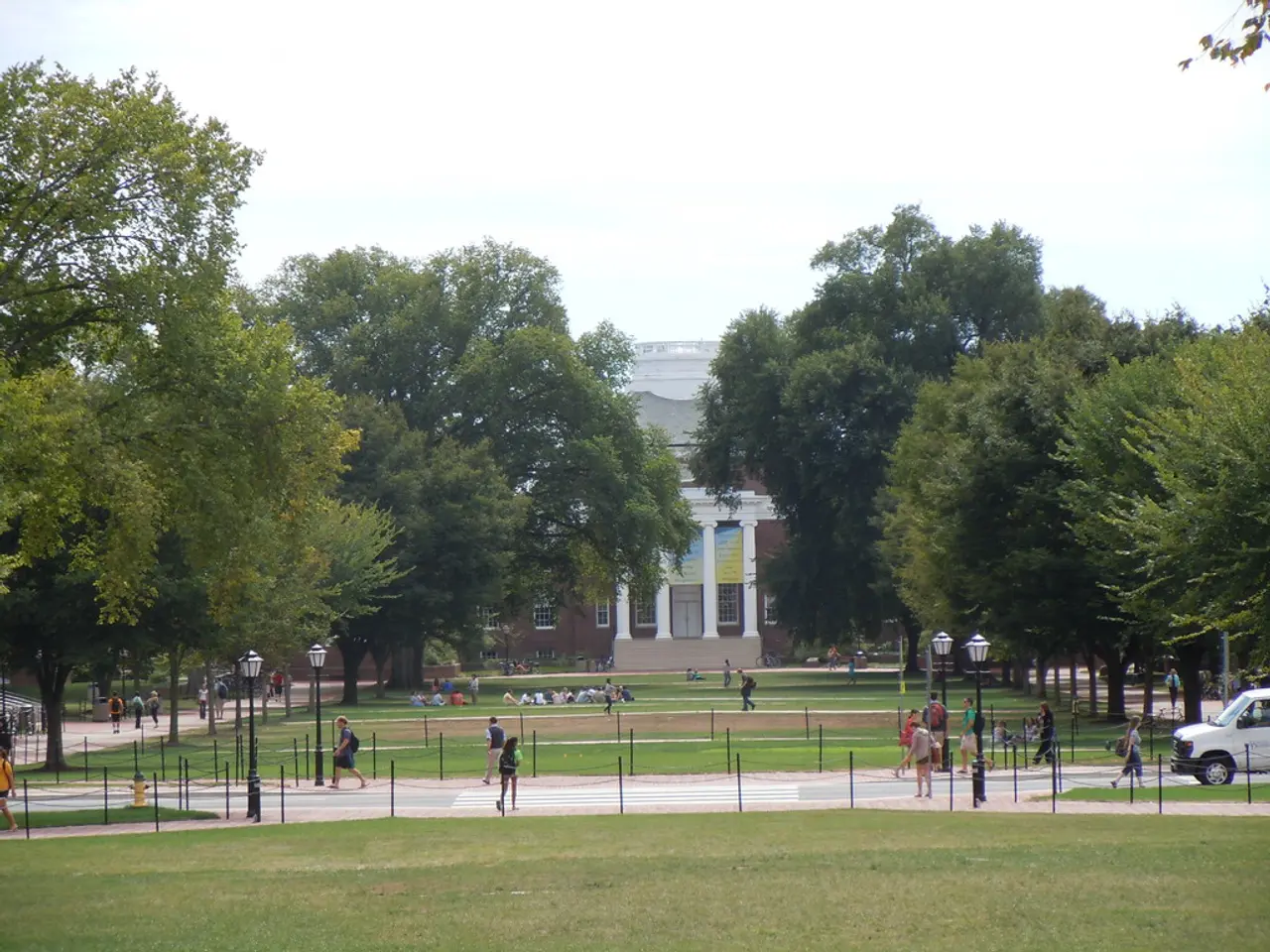College Students File Lawsuits Against 32 Institutions, Alleging That Early Admission Policies Lead to Higher Tuition Fees for All
In a significant development, a class-action lawsuit has been filed against 32 top colleges, including the University of Pennsylvania and Washington University in St. Louis, accusing them of colluding to artificially inflate tuition costs through their Early Decision (ED) admissions practices. The lawsuit, filed in August 2025 in a Boston-based federal court, alleges that these institutions are violating federal antitrust law [1][2][3].
The lawsuit argues that the binding nature of ED agreements and the universities' coordination, often through groups like the Consortium on Financing Higher Education, disadvantages students, particularly those who cannot compare or leverage financial aid offers from multiple schools. The plaintiffs claim this harms lower- and middle-income students and maintains inflated tuition prices, as admitted students under ED are typically less price-sensitive. The suit seeks class-action status, an injunction to end binding ED, damages, and admissions reforms [1][2].
Universities named in the lawsuit, including Brown University, Duke, and Wesleyan College, have denied wrongdoing, calling the claims without merit and defending the fairness and transparency of their ED programs [2]. The case is ongoing in federal court in Massachusetts.
The lawsuit contends that the early decision process reduces need-based and merit-based aid for early decision students. It also alleges that the defendants are actively violating federal antitrust law by limiting competition for early-decision students, which in turn inflates tuition levels for both early decision and non-early decision students [1][2].
The practice of releasing early admissions decisions is common throughout the country. Students who choose the early decision process face far tighter deadlines than their peers, but are also more likely to be admitted. However, this comes at the cost of negotiation leverage and choice, as they are bound by the admission offer and cannot compare financial aid packages from other institutions [1].
The lawsuit was initiated by a small coalition of students, with former students at Wesleyan University, as well as two other schools, among the plaintiffs. The plaintiffs argue that the schools lose incentive to compete on price for students admitted through Early Decision, leading to higher prices for all university applicants, irrespective of when they choose to submit their applications [1].
Benjamin Brown, a lawyer representing the plaintiffs, stated that the consequence of these practices is bad for all university applicants. He emphasised that the lawsuit is not about punishing universities but about ensuring fairness and equal opportunity in the admissions process [1]. The future of this case and the implications for higher education admissions remain to be seen.
[1] The New York Times [2] The Wall Street Journal [3] Boston Globe
- The lawsuit filed against several top universities argues that their Early Decision (ED) admissions practices, such as colluding to inflate tuition and limiting competition, are violations of federal antitrust law and reputedly disadvantage lower- and middle-income students, falling under the category of 'general-news'.
- In this ongoing lawsuit, Benjamin Brown, the lawyer representing the plaintiffs, has asserted that the universities' ED processes, which reduce financial aid and negatively impact competition, blemish the 'education-and-self-development' sector and potentially infringe upon 'politics', as these practices can skew the admissions process and hike tuition costs for all students, regardless of application timing.




